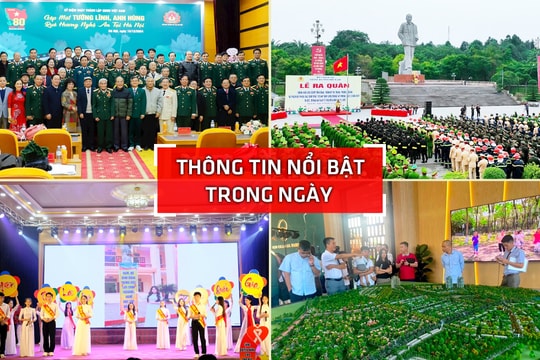Women who suffer violence need to share
(Baonghean.vn) - Gender inequality and gender violence have been problems for many years and can cause serious damage to those affected. It is worth mentioning that gender violence occurs a lot among women and children - vulnerable people.
Regarding this issue, Nghe An Newspaper had an interview with Ms. Tran Thi Bich Loan - Deputy Director of Gender Equality Department, Ministry of Labor - Invalids and Social Affairs.
PV:It is known that you have just been to Nghe An to attend the Project Summary Workshop “Improving staff capacity and public awareness to improve access to support services for women and children affected by gender-based violence”. Nghe An is one of the two provinces that benefited from the project. Can you tell us what is the biggest benefit that this project brings?
Ms. Tran Thi Bich Loan:I once met a victim ofviolenceand she was often abused at night. The place she sought refuge was a shrine in the cemetery. There was no place to cling to, to support herself, and no matter the rain or wind or any weather, that was the only place she could take temporary shelter. When we interviewed her, she said that her body was covered with her husband's beatings, crisscrossed like a map.
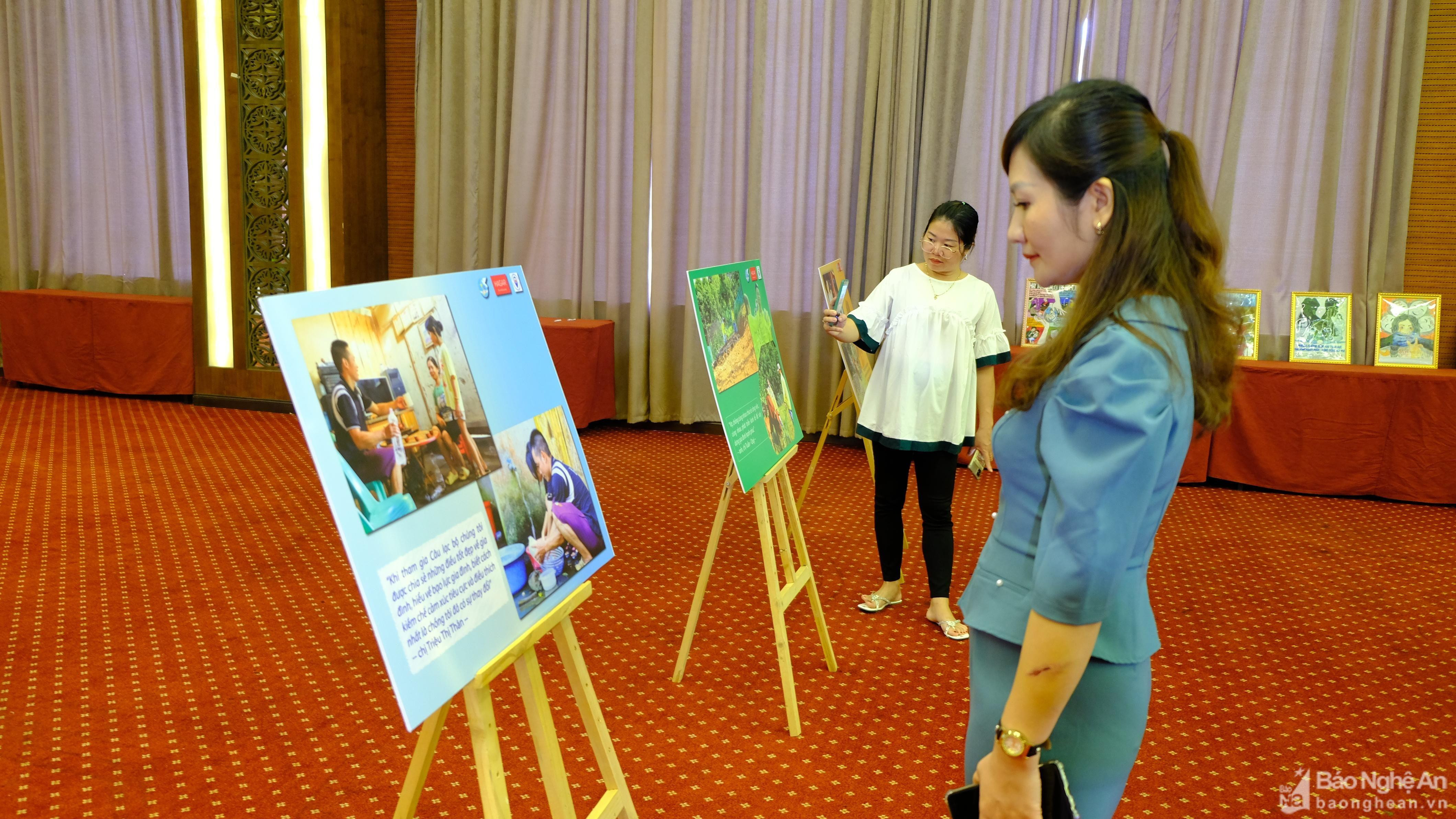 |
Stories about abused women give viewers much to think about. Photo: My Ha |
That is the story that we have been in contact with, have listened to and we truly share the suffering of life that victims of violence have to endure, have to go through. That is why, attending this summary session, listening to the reports, listening to the sharing of results after 3 years of implementing the project, I find it very humane and meaningful because it has conveyed many messages.
The results of the project have achieved impressive numbers, with 900 people affected by violence receiving support, the violence situation has decreased from 58% to 23%. Moreover, 80% of the staff in the project have improved their skills and 200,000 people, men participating in the program, forming peer groups to create pioneering, exemplary, calling on others to create changes in gender equality. In particular, the project has supported the reduction of trauma for those who have been abused and possibly those who have committed violence, which helps them stabilize their psychology and escape the obsession that has gone through extremely painful obsessions in life.
Another result that I think is very meaningful is that the rate of people in the two localities (Nghe An and Yen Bai) participating in the project who boldly sought help from people around them has increased significantly. Previously, this was one of the weaknesses that we learned through the investigation on gender violence in 2019, when up to 90.14% of people who suffered violence had never sought any support from people around them, from local authorities and organizations and services. And with this project, we have created a new change.
In addition, we have initiatives to improve project implementation efficiency such as the initiative to establish a rapid response team, a mailbox to report acts of violence, a hotline and we have support for sustainable economic development to reduce difficulties in life and are one of the factors causing gender-based violence.
Hopefully, after the success of this project from Nghe An and Yen Bai, we will introduce and replicate good models and lessons nationwide.
PV:In the past 10 years, Nghe An province has had more than 8,000 cases of domestic violence, in which the victims are mainly women and children, and this number will increase nationwide. In your opinion, what is the cause?
Ms. Tran Thi Bich Loan: In recent times, although our agencies and sectors have made many efforts to achieve gender equality and eliminate gender inequality, there are still many gaps and challenges in achieving gender equality and preventing and responding to gender-based violence in Vietnam.
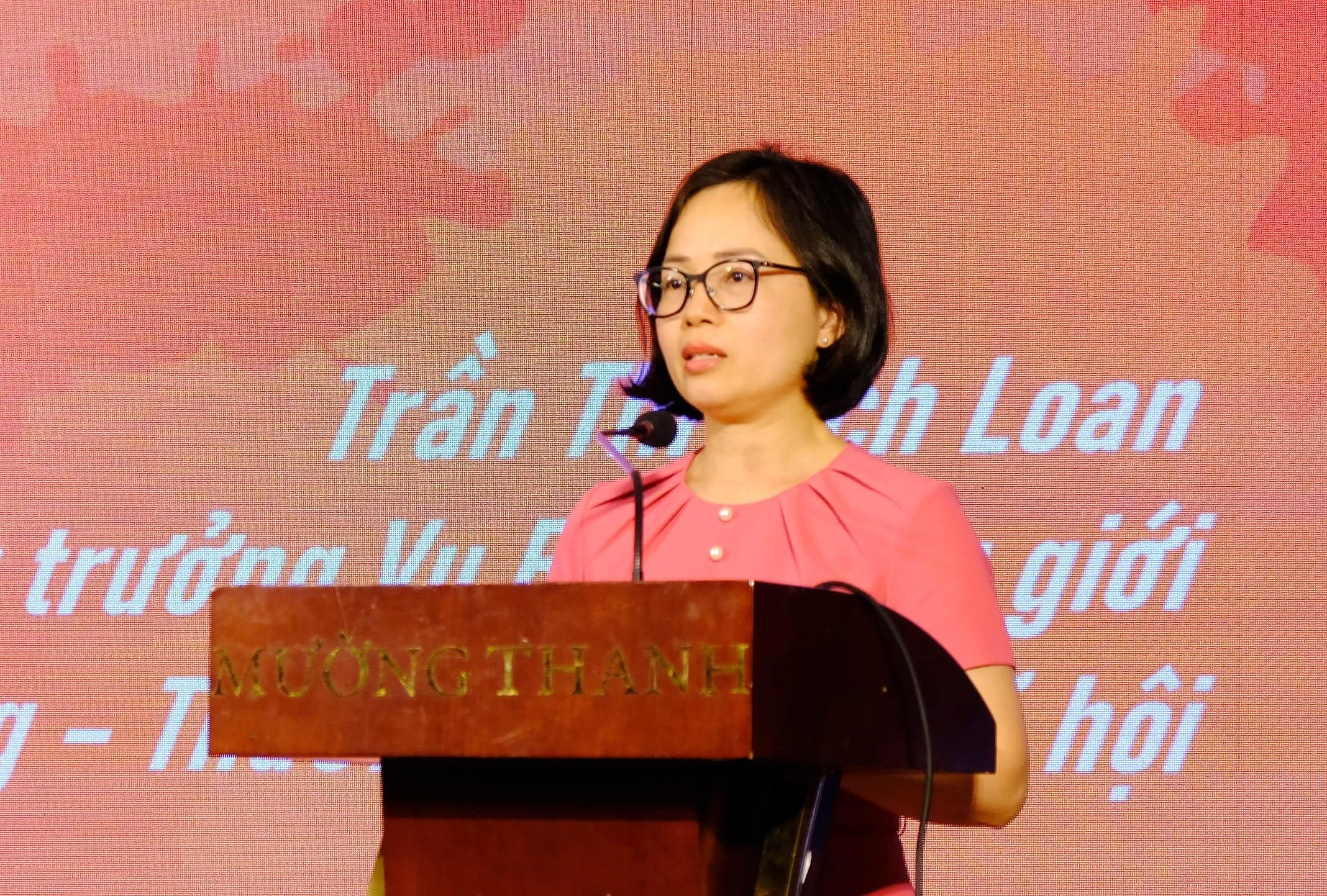 |
Ms. Tran Thi Bich Loan - Deputy Director of the Department of Gender Equality, Ministry of Labor, War Invalids and Social Affairs spoke at the closing ceremony of the Project "Improving the capacity of officials and public awareness to improve access to support services for women and children affected by gender-based violence" in Nghe An. Photo: My Ha |
Because one of the core factors leading to gender-based violence and inequality is gender discrimination, leading to the valuing of men over women. This leads to discrimination, discrimination and the denial of gender participation in society. Women and girls are still a vulnerable group, both in the family and in society. Although up to now, the figures in many areas have shown a lot of progress of women in participating in areas of life, economics, politics and society, but in terms of specific aspects, there are still gaps and thus leading to forms of gender-based violence.
Currently, we have 3 concepts, violence against women, domestic violence and gender-based violence. The current law still has gaps when we only have 1 law, which is the Law on Prevention and Control of Domestic Violence, which regulates acts of domestic violence. However, as we know, violence does not only occur within a family but also occurs in other environments such as workplaces, schools, public spaces, and is now even very popular on social networks. Therefore, there must be appropriate response measures for each group of affected subjects, in different environments. Or, the LawGender equalityThere is a provision prohibiting gender-based violence, but there is no comprehensive definition of gender-based violence.
The second issue that I see as a huge challenge is people's awareness of issues related to gender equality and gender-based violence. The general public still has stereotypes about the roles of women and men. Women themselves, with a long educational background from grandparents, parents to generations of children, follow the tradition that men must be tough, the pillars of the family, women must be flexible, patient, know how to sacrifice, and must take care of family work, and with such awareness, it has created discrimination and treatment from within the family to society.
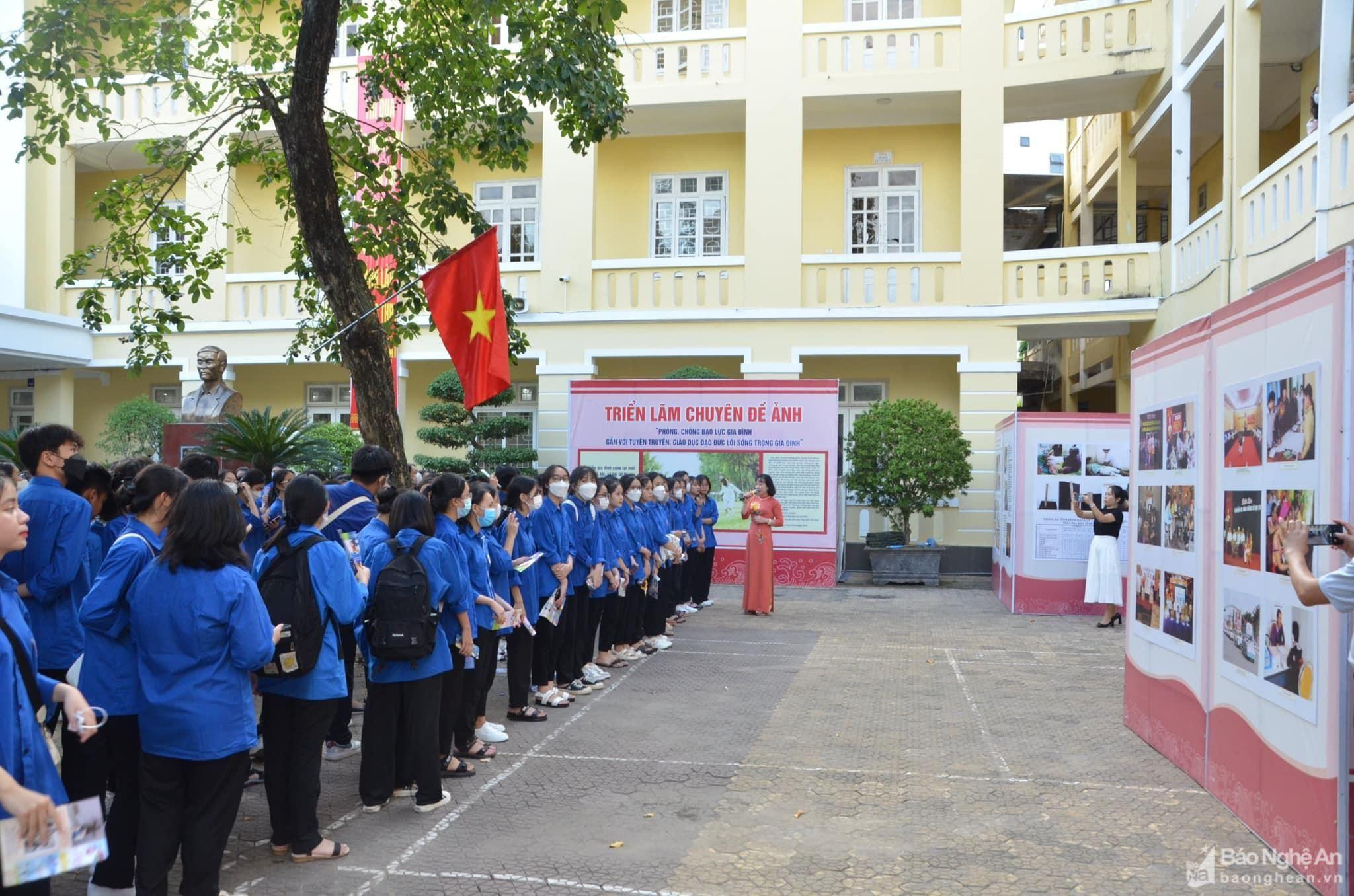 |
Students of Le Viet Thuat High School (Vinh City) learn about the issue of domestic violence. Photo: My Ha |
Many of the women we interviewed had very sad results: Up to 50% thought that violence against them was very normal, not a big deal. The society still values men more than women with catchphrases like "being flowers for people to pick, being girls for people to tease" and behaviors related to harassment and violence are always justified by some reason.
In fact, violence is hidden and instead it is the woman’s fault. When some harassment cases are reported in the mass media, the victims are often condemned more than the perpetrators. We call it secondary violence, which continues to indirectly hurt the victims and they do not dare to speak up and continue to remain silent, not daring to tell their stories.
PV:In addition to the above reasons, it seems that human and material resources to ensure the rights of victims of violence have not been given due attention?
Ms. Tran Thi Bich Loan:I think that the current inter-sectoral coordination mechanism is still loose and we do not have a mechanism that clearly states which agency will receive the case and which agency will coordinate to handle it when a violent incident occurs.
A typical story is that of a 5-year-old girl who followed her mother to Ho Chi Minh City for work and was sexually abused by a motorbike taxi driver. The mother, when she knew her child was abused, but from 5 pm to 12 am took her child to many places for forensic examination, filed a complaint but from the police, the women's association and the hospital still could not determine. Meanwhile, the evidence is only valid for 24 hours.
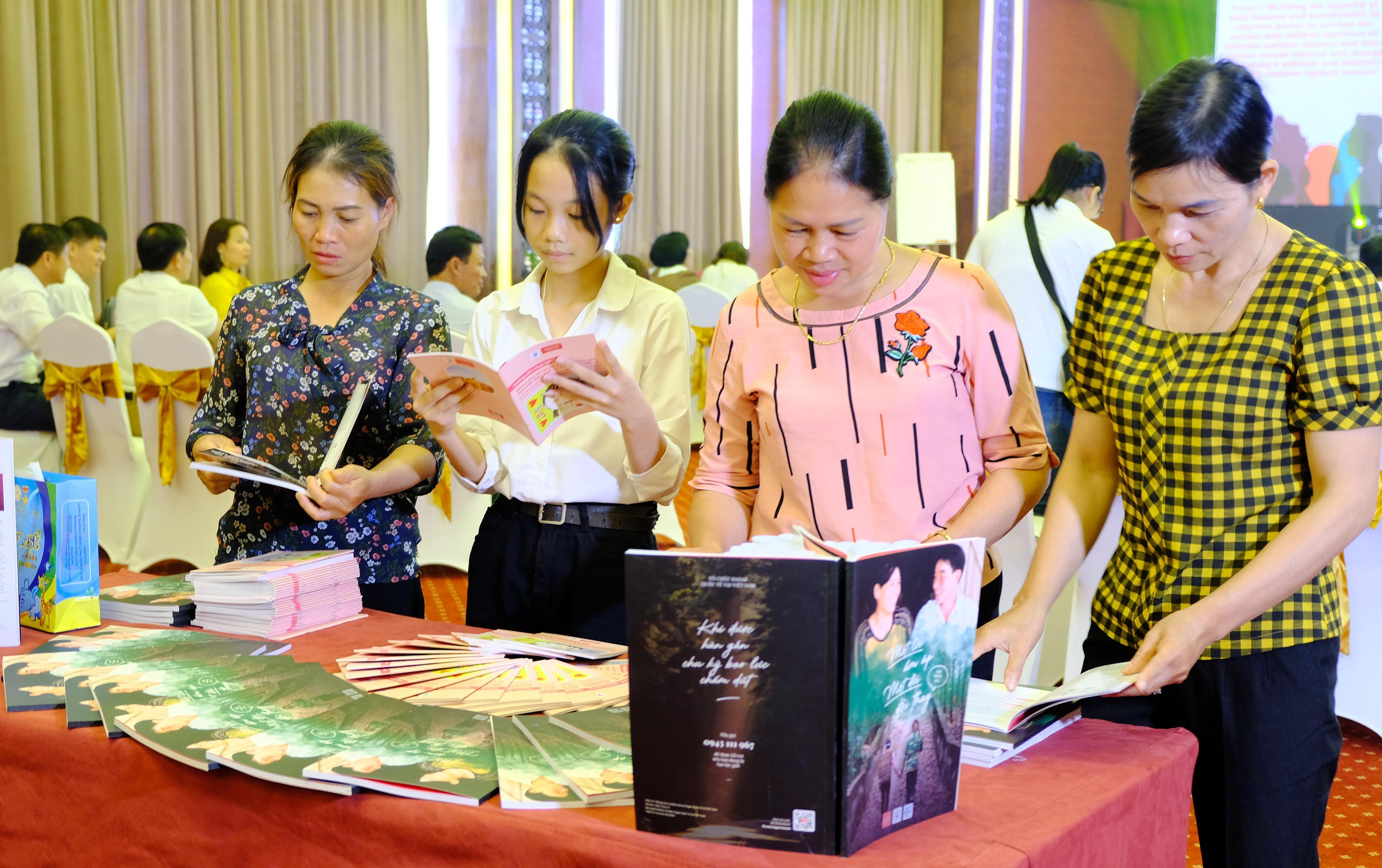 |
| The issue of gender violence is of concern to many women. Photo: My Ha |
Another gap is that services are still very lacking and weak. There are very few mechanisms for being willing to share and be listened to, and many service providers do not have much knowledge and skills when working with victims of violence. I think that when a victim of violence calls the hotline and is asked why they know our phone number, why they are being abused, it will be very difficult for them to share their story. What we need to aim for is for those services to be truly friendly and sympathetic so that they can share and rely on.
Other limitations are human and financial resources. We once drafted a draft on an inter-sectoral coordination mechanism, but organizing consultation workshops and determining at the commune level who would be in charge of receiving cases to connect victims of violence with other authorities was really difficult. Because a commune-level civil servant in the labor sector has to take on more than ten tasks, it is not easy and if implemented, it will be vague and formal.
PV:Nghe An is a unique province with 11 mountainous districts. As someone working in the field of gender equality, what disadvantages do you think women and children in the highlands will face?
Ms. Tran Thi Bich Loan:One of the points that we believe is difficult and challenging is that the socio-economic conditions in mountainous and ethnic minority areas are still very difficult, so the improvement of people's knowledge and participation in social activities of women and girls are very limited. This, if only comparing women in mountainous and lowland areas, the gap is clear, not comparing with men. In addition, backward customs, early marriage, and incestuous marriage are still common, which are challenges that we need to focus on communicating.
In the coming time, the strategy for implementing the development of ethnic minority areas in Nghe An also needs to be more substantive and not separate gender issues from the socio-economic development plans of localities, especially ethnic minority areas. In addition, it is necessary to propose appropriate solutions, enhancing the role of not only women and girls but also men and boys so that the groups can benefit better, together improve the people's knowledge and together achieve the goal of promoting gender equality.
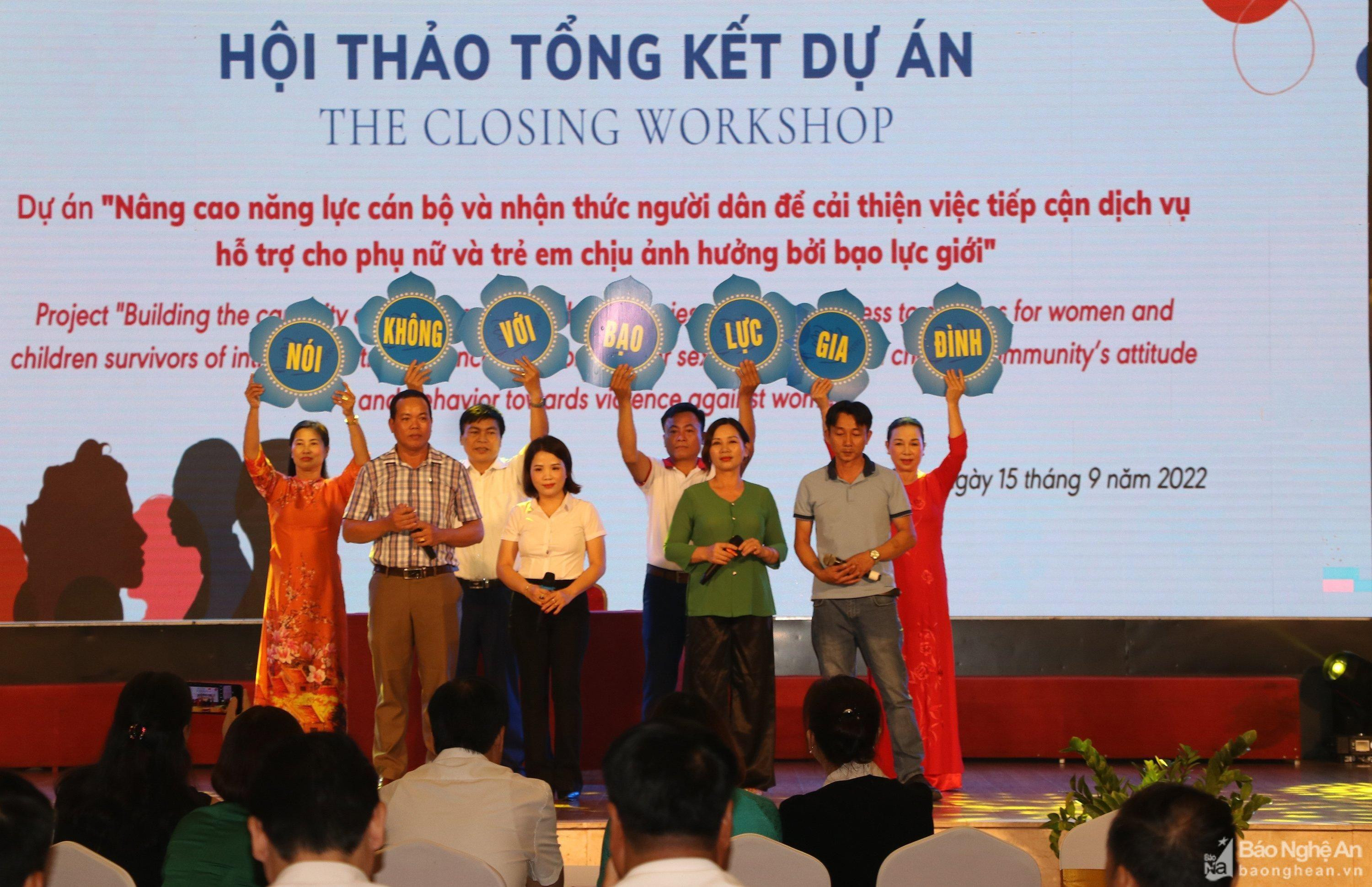 |
Media with the content "Say no to domestic violence". Photo: My Ha |
PV:So, to limit gender-based violence and narrow the gender inequality gap, what solutions do we need, Madam?
Ms. Tran Thi Bich Loan:In the coming time, it is necessary to improve the institutions, policies and laws on gender equality and prevention and response to gender-based violence. Currently, we are working on the revised Law on Gender Equality, which requires clarifying the concept of gender-based violence and what acts constitute gender-based violence. In addition, it is necessary to clarify the concept of harmful acts leading to gender inequality such as early marriage, forced marriage, and abortion to select the sex of the fetus.
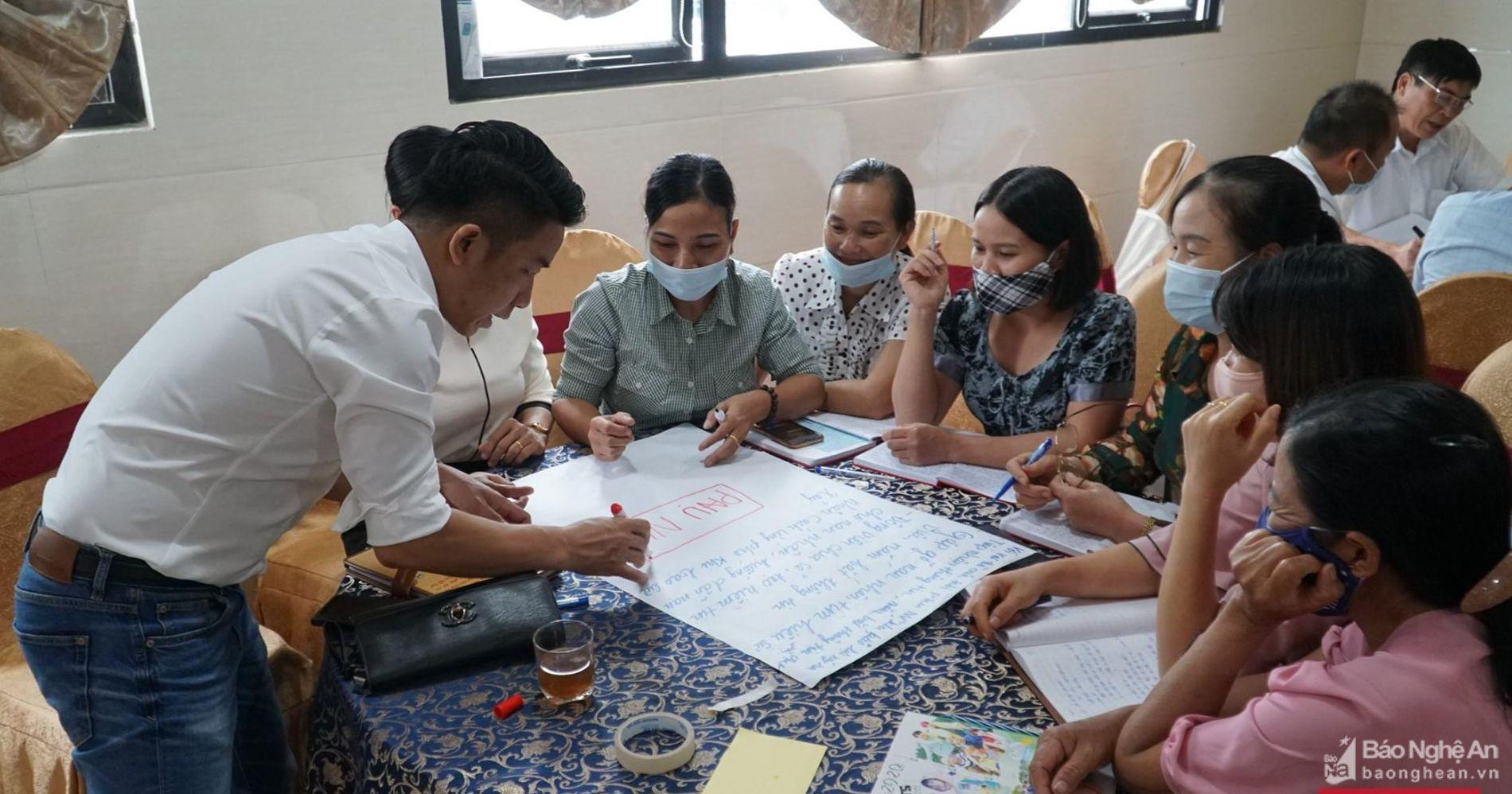 |
A training session on “Laws, policies and methods of working with perpetrators of violence” in Quynh Luu district. Photo: CSCC |
In addition, there should be regulations to form channels for receiving information to support those who have complaints and denunciations about gender-based discrimination, treatment and violence. From the Law on Gender Equality, which we consider as a framework law, it is necessary to stipulate principles for other laws to ensure implementation, avoiding discrimination and treatment in different environments and fields. In addition, it is necessary to raise awareness of communication to change the behavior of all classes of people. Communication must be appropriate to each target group, regional language level and exploit the strengths of information technology in the modern context, social networks are booming.
I also think that it is necessary to do a good job of inter-sectoral coordination and clarify the responsibilities of each participating unit. That is, when an incident occurs, each agency must answer to the people how long it will take to handle the situation, avoiding the situation of being slow, "playing ball", lacking responsibility, lacking concern and understanding.
PV:Thank you!

.jpg)
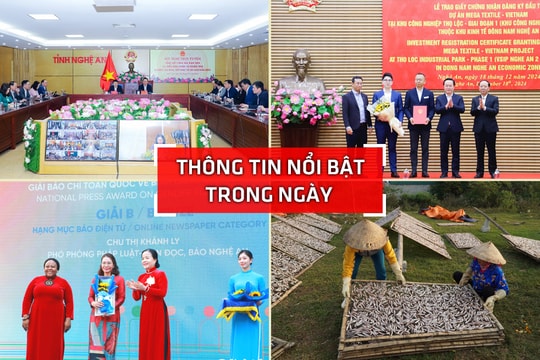

.jpg)
